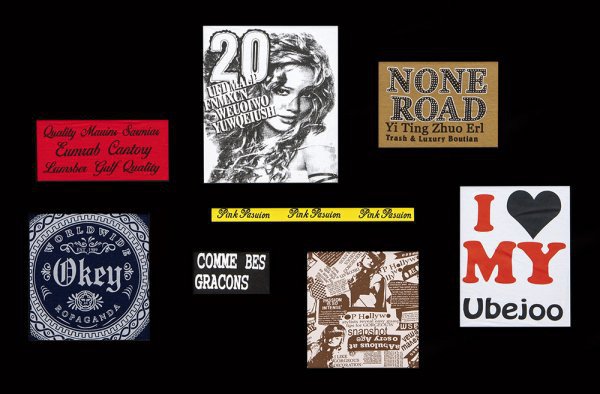15/3/2015
Anahita Razmi
Carbon 12, Dubai
In an act of geopolitical observation as well as personal introspection, Anahita Razmi's works for the exhibition confront the term Gharbzadegi, meaning 'Weststruckness' with the fictional term Sharghzadegi, 'Eaststruckness'.

Carbon 12 is delighted to announce Sharghzadegi, Anahita Razmi’s second solo exhibition with the gallery.
In an act of geopolitical observation as well as personal introspection, Anahita Razmi’s works for the exhibition confront the term Gharbzadegi, meaning “Weststruckness” with the fictional term Sharghzadegi, “Eaststruckness”.
Gharbzadegi (Persian: غربزدگی) is a pejorative Persian term variously translated as “Westoxification”, “West-struckness”, “Westitis”, “Euromania” and “Occidentosis”. During the reign of Shah Reza Pahlavi Iranian intellectuals began to use the term Gharbzadegi to describe the ill-fated relationship between the West and Iran. In 1962 Jalal Al-e-Ahmad wrote “Occidentosis: A Plague from the West” in an attempt to conceptualize the loss of Iranian cultural identity through the adoption and imitation of Western models in politics, education, arts and culture.
Departing from the original use, Razmi’s proposition for a counterpart concept deploys shifting historical and contemporary connotations in a variety of ways, questioning definitions of East, Middle and West.
As an inversion, it is the beginning of an investigation into the linguistics of desire, power and empowerment: Equipped with a built-to-resist “Middle-East Pak”, Razmi travels along the Silk Road to find Chinese brand pirates ripping apart the rhetorics of T-shirt slogans and luxury fashion, deconstructing Western languages for Iranian markets, then wraps up the famous “East Coast – West Coast” conversation between Nancy Holt and Robert Smithson, positioning it somewhere between Christo and Jean-Claude meets religious watchdog and broadcasts advertisements for her own persona. In doing so, Razmi allows for a distanced look at Orientalism today, which she finds in diverse places such as Los Angeles, Tehran and Guangzhou, leaving the viewer to decide which East he or she is confronted with. East of where? East of what? Globalized trade meets globalized art world, where stereotypes are persistent in very much different ways, but persistent nonetheless.
Anahita Razmi (b. 1981, Hamburg) is a contemporary multi-disciplinary artist, living and working in Berlin. Her body of work focuses on issues of identity and gender while appropriating national, cultural and artistic references.
Anahita Razmi studied at Bauhaus-University Weimar, Pratt Institute New York and Academy of Fine Arts Stuttgart prior to her institution-laden exhibition history of her video and performance works, including the 55th Venice Biennale, Kunstverein Hannover, Kunstmuseum Stuttgart among numerous others. In 2014 she was awarded the Goethe-Institut Villa Kamogawa Residency, Kyoto, other residencies and awards include the MAK-Schindler Artists and Architects-in-Residence Program, Los Angeles (2013) and the The Emdash Award, Frieze Foundation (2011). Her work is in the permanent collection of Kunstmuseum Stuttgart, among others.
On the occasion of this exhibition, Carbon 12 will publish a catalogue.
Opening: Monday 16th March - 7pm
Carbon 12
Address Unit D37, Alserkal Avenue,
Street 8, Al Quoz 1 P.O.Box 214437
Dubai, UAE
Opening hours
Saturday to Thursday 11:30 - 19:00
Closed on Fridays



